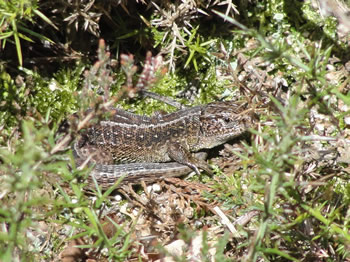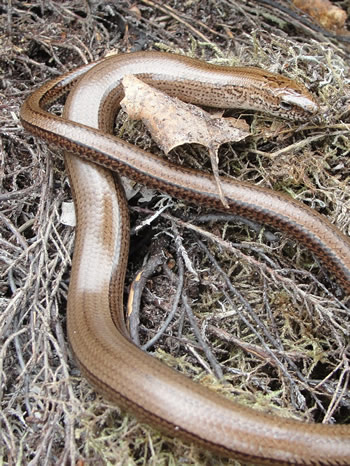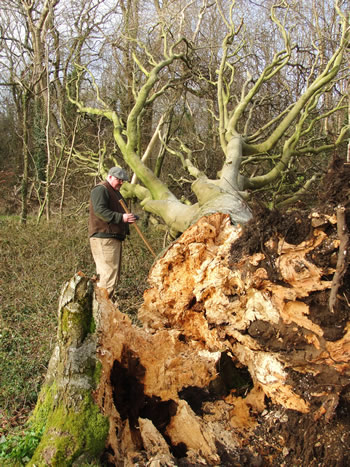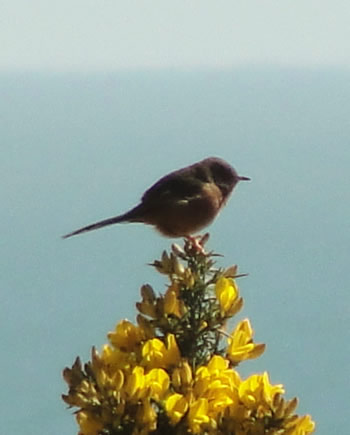I prefer to call it summertime, as spring has almost come and gone, catching up with the place it should be, although many animals and plants have lost their short time period to do what they should have done.The breeding cycles of many will be quashed for this year;whether or not it will have an overall bad effect on the long term success of many species remains to be seen. During this last week sand lizards(Lacerta agilis) are out basking and have shed their winter skins, as have most snakes. The male lizards are already claiming their territories and it will take several weeks to slowly turn into their breeding colours.
The wall lizards peep from their wall holes, they of course do not hibernate, but just become less active during winter and so are a head start above other species.
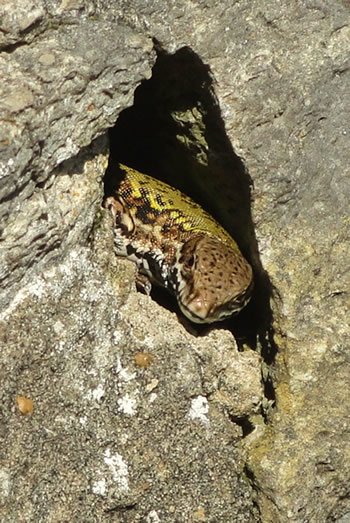 This is a mature female( Lacerta muralis). The long wet winter seems to have effected the numbers of these and possible green lizards(Lacerta viridis) but one will have to see how many emerge in the next week or so.
This is a mature female( Lacerta muralis). The long wet winter seems to have effected the numbers of these and possible green lizards(Lacerta viridis) but one will have to see how many emerge in the next week or so.
An old female slow worm (Anguilla fragilis) basks under a piece of roofing felt.
There are a few species of Ganoderma bracket fungi in the UK, and locally there may be most of them present, but this one is far less common than two or three other species. It is ganoderma (pfiefferi) and it was found on an old beech tree near Dorchester. It is very old and yearly the fruiting body adds a layer, so in time it becomes a huge deep wedge.The fungi weakened the tree’s support system making it vulnerable to winds and so it fell whilst still alive. This is a very natural process and in the larger scheme of things is needed to naturally create clearings within the vast seas of woodland that once supported the land, but unfortunately with far less trees about, especially beech, their habits are far less welcome by people. Most fungi are vital to the eco system and without them other species suffer.
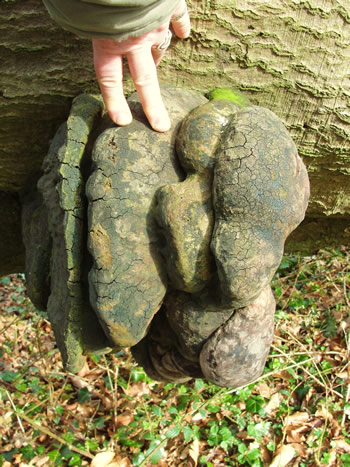 This is the whole tree showing the rotten inner parts.
This is the whole tree showing the rotten inner parts.
Marc Eldridge (friend and tree consultant ) pokes about and does a full inspection.
Dartford warblers(Sylvia undata) have suffered losses this past winter but not as many as I first thought as one can hear the males singing from most large areas of heathland including the Bournemouth clifftops by the sea.These warblers are insectivorous .The common gorse is now in full flower.

